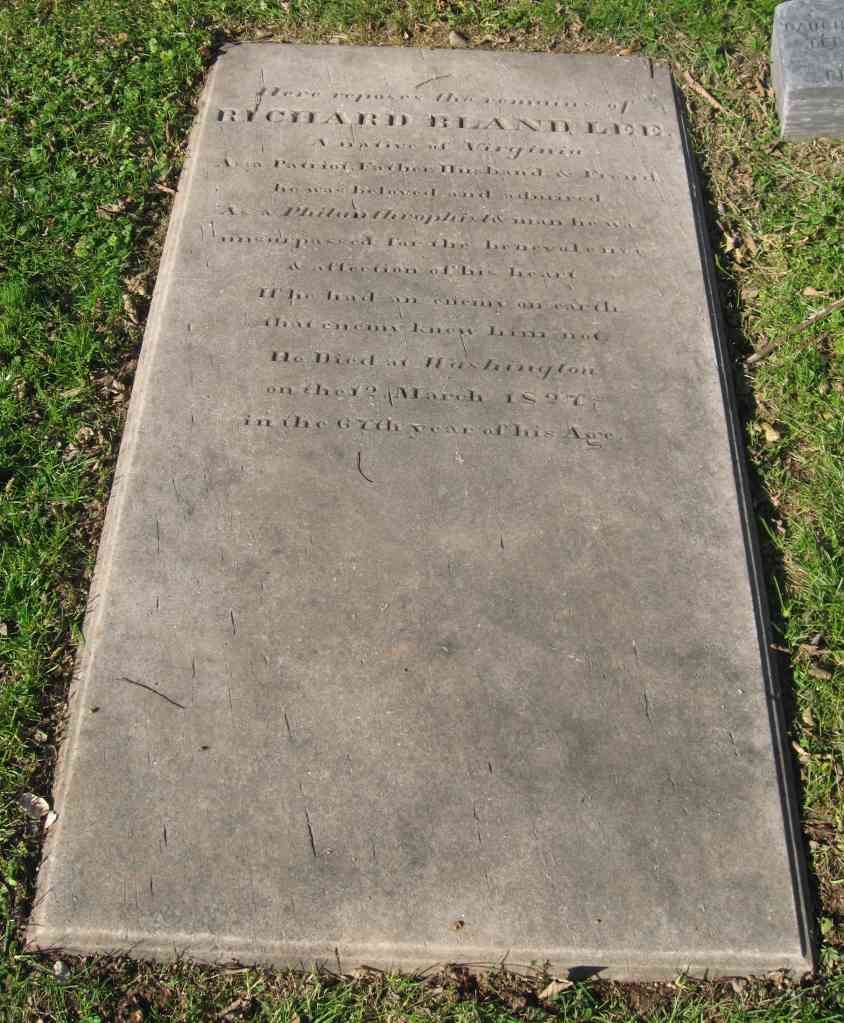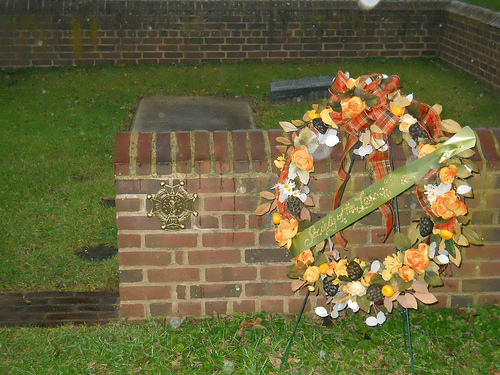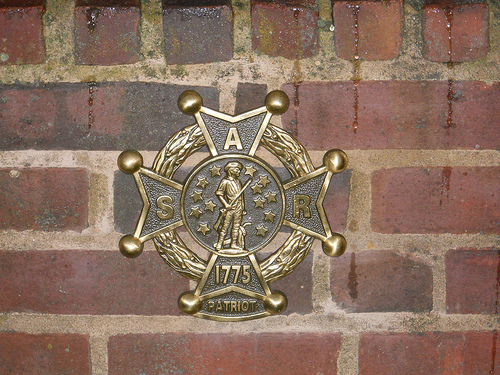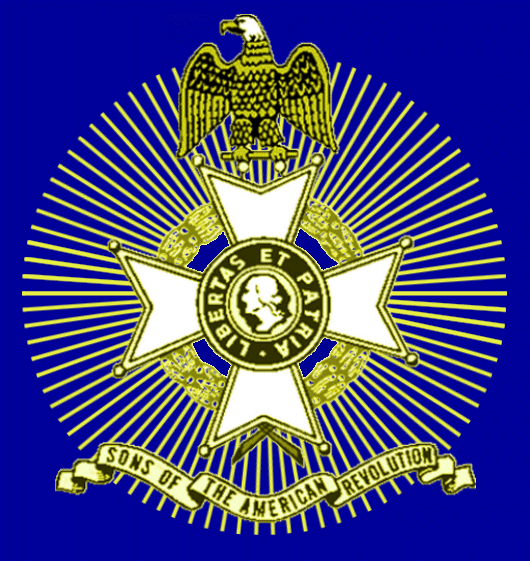Richard Bland Lee in the Revolutionary War
Loudoun County, Virginia
By William W. Price
Fairfax Resolves Chapter, Sons of the American Revolution
19 November 2011
Today we recognize Richard Bland Lee (1761-1827) for his material contributions to the cause of American Independence during the Revolutionary War. In 1780, the Virginia Assembly passed “An act procuring a supply of provisions and other necessaries for the use of the [Continental] Army”. This act authorized the Governor of Virginia to appoint commissioners in each County to acknowledge receipt of donated materials and services for later reimbursement.1 Under the provisions of this Act, and as a resident here in Loudoun County, the then twenty-year old and recent College of William and Mary student Richard Bland Lee donated 223 pounds of beef to help feed the Revolutionary Army.2 This information was discovered while researching the documents regarding Ensign Thomas Millan, another Loudoun County resident whose service included direct action in the Battle of Yorktown.3 Ensign Millan’s grave is in Fairfax City Cemetery, and was marked by the Fairfax Resolves chapter in November 2010. The boundaries of Fairfax and Loudoun Counties were redrawn in 1798, and property owners in the eastern-most sections of Loudoun County (such as Richard Bland Lee and Thomas Millan) were now residents within the new boundaries of present-day Fairfax County.4

Richard Bland Lee Grave Marker
Click to Enlarge
The Lee influence in both Virginia and our nation’s capital can be traced back to the time of Richard’s grandfather, Henry Lee I (1691-1747). In 1713, his great uncle Thomas Lee (1690-1750) was appointed resident agent for all lands originally granted by the King of England to the Culpeper and Fairfax families, a grant totaling over 5,000,000 acres.5 He became intimately familiar with the area of what we now call Northern Virginia, and also the Maryland lands destined to become the District of Columbia. In Fauquier County, lands owned by descendants of Thomas Lee were used to establish the city of Warrenton. Several thousand additional acres were deeded to family members in Loudoun County; the town of Leesburg is the present monument to these transactions.6 Lee family tradition holds that Thomas predicted that the capitol of a new, independent American nation would lie along the “Potomack” River between its Great and Little Falls (between present-day Great Falls, Virginia and Brookmont, Maryland).7 As a member of Congress in 1790, Richard Bland Lee was one of two deciding votes that authorized then President George Washington to establish a “100 square mile” federal city for the new United States on the banks of the Potomac River8…in the very region foreseen by Richard’s great uncle Thomas.
A strong personal and political alliance appears to have existed between Richard Bland Lee and President George Washington. Lee was a staunch Federalist and supporter of the President during his two Administrations.9 President Washington noted in his personal diaries his vote for Mr. Lee as his first elected Virginia congressman under the new Constitution.10 As mentioned previously, Lee was one of two deciding votes that placed the National Capitol in its current location. He also cast critical votes that permitted the new federal government to assume the several debts of the now United States that were contracted during the Revolutionary War.11 Lee also was one of only four Virginia representatives that voted for the Naval Act of 1794, which many cite as the creation of today’s modern United States Navy.12 These decisions, since vindicated by history, were all made in an atmosphere of increasing political tensions. We see evidence of this in the emergence of political factions in Virginia during the 1790s, and in the published minutes of citizen organizations such as the Democratic Republican Society of Prince William County. At its meeting of June 7, 1794, its members declared that the “System of Politicks” pursued by Lee “ought to meet the most pointed disapprobation of his constituents”.13 Though he was not returned to Congress in the following year, his personal relationship with the President remained strong throughout. Both George Washington and his wife Martha stood as godparents to his son, Richard Bland Lee II, born in 1797.14
The closeness of Richard Bland Lee to the Washington’s is also a testimony to the character, person, and love of his life, Elizabeth Collins (1768-1858). In a letter to her father, Stephen Collins, Richard described the prospect of his marriage to Elizabeth as “the study of my life to deserve”.15 They were married in 179416 while Richard was serving in Congress. Her 1858 obituary provides a remarkable narrative that speaks for itself:
“The political eminence of the husband and the high personal esteem in which he was held by Washington gave Mrs. Lee habitual access to the President’s domestic circle. A singular aptitude for accurate observation make her familiar with the characteristics of the Great Chief in private life and these were indelibly imprinted on her memory, which was singularly tenacious…Few have lived to such an age with such memories and so beloved as this venerable lady whose life will be remembered for those graces and virtues which gave to her death a serene, peaceful, and happy repose.”17
Surviving letters show that Elizabeth (known as Eliza to her friends) was a family confidante to Anne Carter Lee, second wife of Henry “Light Horse Harry” Lee (Richard’s older brother) and mother of Confederate General Robert Edward Lee.18 Elizabeth Schuyler, wife of Alexander Hamilton, was also a close friend.19 In her later years, she enjoyed the “friendship and society” of Senators Henry Clay of Kentucky, John Berrien of Georgia, and Daniel Webster of Massachusetts.20 But perhaps the most vibrant and colorful of her acquaintances was Dolley Payne (Todd) Madison. The friendship between Eliza and Dolley was life long. She was Dolley’s bridesmaid when she married John Todd in 179021 (he died of yellow fever in 1793). On the day of her wedding to James Madison, Dolley wrote to Eliza at Bath, Virginia (present day Berkley Springs, WV) where she and Richard were honeymooning.22 We should note that Dolley’s new husband (founder of the Democratic-Republican Party) and Richard Bland Lee had already formed their own close bonds in spite of their political differences.23 During James Madison’s second term as President, Richard and Eliza sold Sully in 1811 and eventually settled in Washington DC.24 Richard was appointed by President Madison as one of three commissioners to oversee reconstruction of public buildings burned by British forces during the War of 1812.25 Dolley returned to Washington DC in 1843 after the death of her husband.26 Eliza was a witness to Dolley’s will and was at her bedside when she died in 1849.27
In her biography of Richard Bland Lee, Clarrisa W. Fleming closes her story with the following quote attributed to the Athenian statesman Pericles:
“For the whole earth is the sepulcher of famous men, and their story is not graven only on stone over their native earth, but lives on far away, without visible symbol, woven into the stuff of other men’s lives.”28
Today, what is woven into “the stuff” of our lives has produced something visible. The dedication of this bronze marker is one of those rare moments when we, the living, are able to place a visible symbol to acknowledge deeds that were previously forgotten, unnoticed, or unseen. Accordingly, this final resting place of Richard Bland Lee, Citizen and Patriot, is proudly recognized by The National Society of the Sons of the American Revolution.

The SAR Marker is mounted on the brick wall just that surrounds the cemetery plots at Sully Plantation in Fairfax, Virginia.

The Richard Bland Lee SAR Marker
1 Hening 10, Statutes of Virginia (1780), 8, An act for procuring a supply of provisions and other necessaries for the use of the army.
2 Janice L. Abercrombie and Richard Slatten, Virginia ‘Publick’ Claims: Loudoun County (Georgia: Iberian Publishing Company) 21.
3 William W. Price, The Life and Times of Ensign Thomas Millan (prepared for Fairfax Resolves Chapter SAR, November 2010), 2.
4 James W. Head, History and Comprehensive Description of Loudoun County, Virginia (Park View Press, 1908), 16-17.
5 Burton J. Hendrick, The Lees of Virginia (New York: Halcyon House, 1935), 58-60.
6 Ibid, 60.
7 Ibid, 52-53.
8 The Public Statutes at large of the United States of America, ed. by Richard Peters (Boston: Charles C. Little and James Brown, 1845), I, 130.
9 Robert S. Gamble, Sully: The Biography of a House (Chantilly, VA: 1973), 21-23.
10 George Washington, Diaries, 1748-1799. ed. by John C. Fitzpatrick for the Mount Vernon Ladies Association (Boston: Houghton Mifflin Company, 1925), IV, 6.
11 Peters, I, 138-144.
12 Harold Hance Sprout, The Rise of American Naval Power, 1776-1918 (New Jersey: Princeton University Press, 1966), 47-52; Peters, I, 350-351.
13 The Democratic Societies of 1793 and 1794 in Kentucky, Pennsylvania and Virginia, William and Mary Quarterly 2, no. 4 (October 1922): 251-252.
14 Clarrisa W. Fleming, Richard Bland Lee: Statesman and Master of Sully (Virginia: 1960), 22.
15 Ibid, 21.
16 Lee, 370.
17 Fleming, 34.
18 Hendrick, 386, 391.
19 Fleming, 34.
20 Ibid, 34.
21 Richard N. Cote, Strength and Honor: The Life of Dolley Madison (Mount Pleasant, SC: 2005), 89.
22 David B. Mattern and Holly C. Shulman, The Selected Letters of Dolley Payne Madison (University of Virginia Press: 2003), 31-32.
23 Fleming, 18-19.
24 Gamble, 52-53.
25 Ibid, 53.
26 Mattern and Shulman, 323.
27 Ibid, 390-391; Fleming, 29.
28 Fleming, 35.

